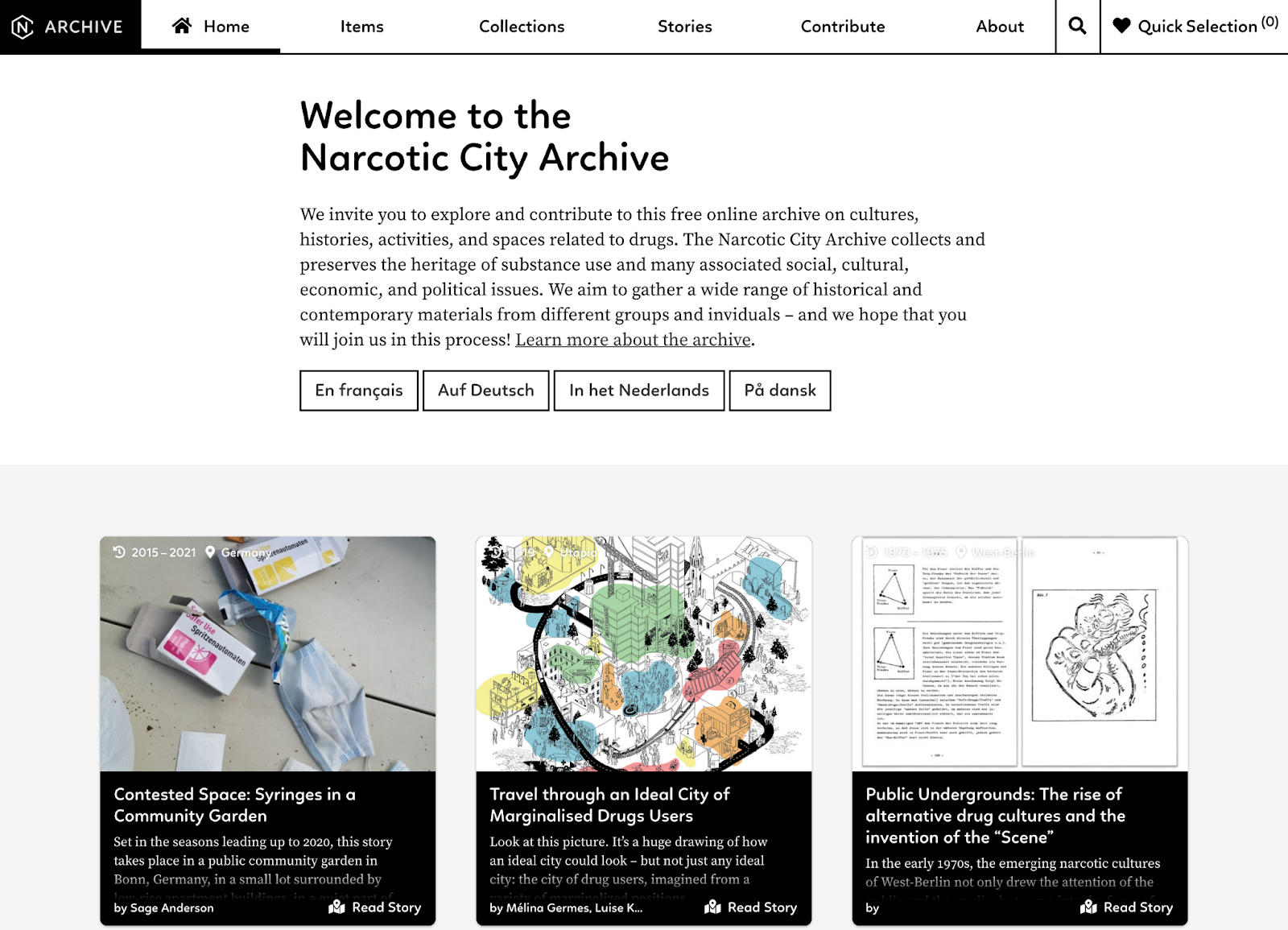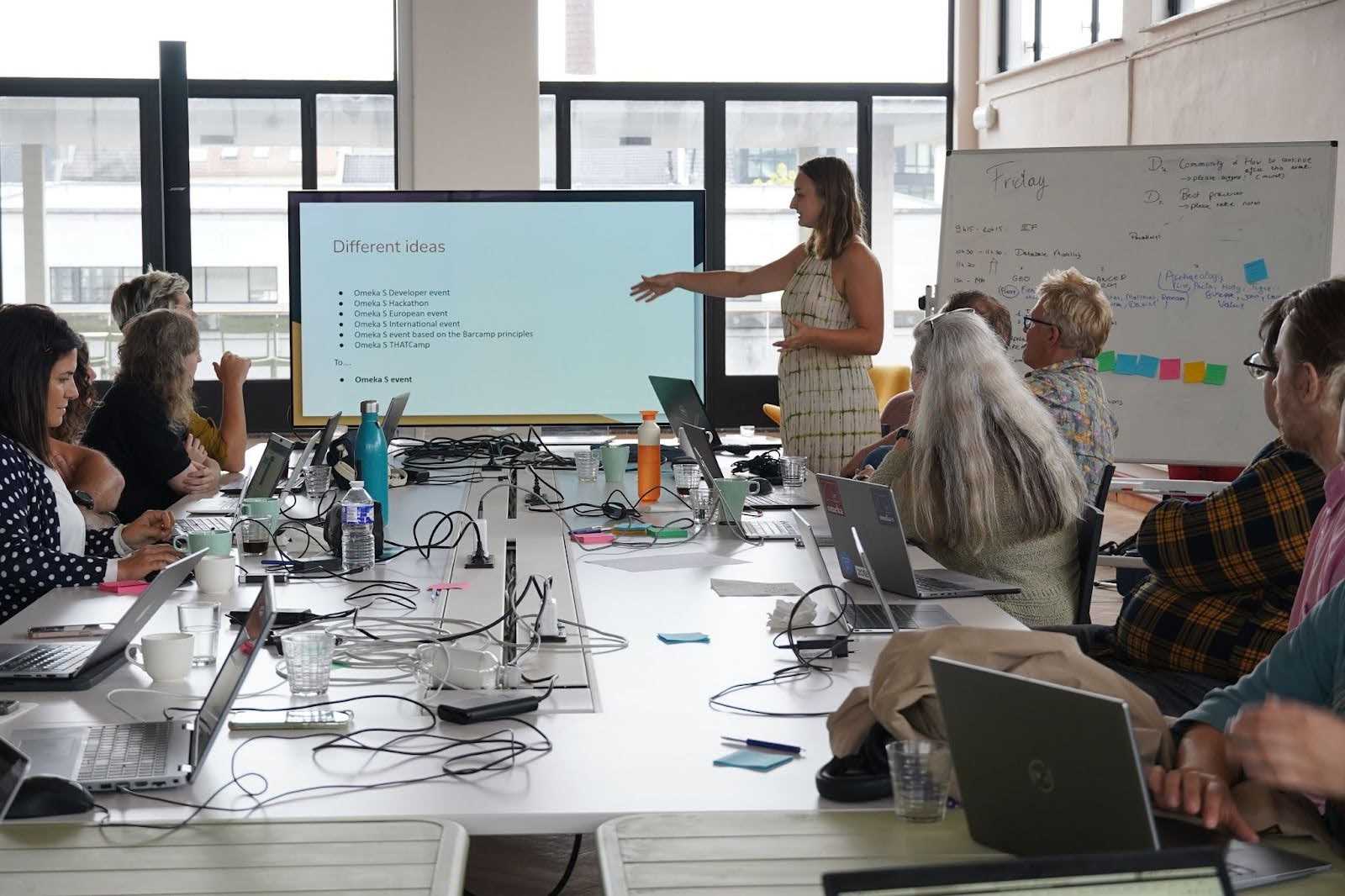Message from the Director
Happy New Year!
We were grateful for an eventful 2023, which included celebrating Omeka’s 15th anniversary. Over the course of those fifteen years, the Omeka Team has grown to include ten regular staff members who work hard to design and develop open source software that makes it possible for users to describe, publish, and activate their cultural heritage materials in flexible and accessible ways. Their efforts have resulted in two open-source web publishing platforms, one software as a service platform, seventy-five modules and plugins, and twenty themes–not to mention the countless addons designed and developed by the Omeka community of users.
None of the team’s efforts would be worthwhile without the reward of the outstanding digital work that the software facilitates for users around the world. The thriving Omeka ecosystem is possible only because of the dedicated users and developers who regularly share their work and their vision for the future development of the software. We are eager to continue to collaborate with you in 2024 and long into the future!
Best wishes!
Sharon M. Leon
New Developments
2023 was marked by a set of new software releases that represent the efforts of the Omeka team to respond to the needs of users and developers.
Early in the year, the team released Omeka S 4.0, which included a new block system for users and theme designers to customize the layouts of their item, item set, and media resource pages. These innovations were followed by the release of the new Freedom theme.

Additionally, the developers concentrated on system interoperability, discoverability, and data portability with updates to the connector modules, and the release of Resource Meta–a module that makes content more discoverable by search engines, IIIF presentation tools, and the creation of more output formats for the core. In December, the team published the Omeka S v.4.1 release candidate, which includes improvements to the page and site authoring tools, including a grid system and configuration options for all page blocks.
Work on the Omeka Classic front included significant progress on a complete accessibility review and remediation that began after the release of the new administrative theme with v3.0. Though Omeka Classic was always designed with accessibility in mind, the standards and options for optimizing accessibility have evolved through the years, and the team is working hard to bring the platform into alignment with contemporary accessibility expectations. That has necessitated rolling theme and plugin updates that will continue into 2024. Ultimately, these improvements will cascade through the Omeka.net system to serve the more than 100,000 users of that system. Additionally, we made updates to the Timeline plugin and also released a version of Resource Meta for Classic.
Our efforts to serve and support the day to day needs of our users are ongoing. During 2023, the Omeka Team conducted a systematic review and overhaul of our end user documentation for both Omeka S and Omeka Classic. To supplement this documentation, which provides the first line of introduction for users who want to work with the platforms, we held the first three sets of our eight-week online synchronous training course for Omeka Classic and Omeka S. The courses have proved to be a great success and we will continue to offer them in the coming year.
Finally, during the past year the Omeka Team increased its attention to providing managed hosting, support services, and custom development for individual, community orßganization, and institutional users. Dozens of clients have chosen to hand over the responsibility for installing, updating, and monitoring their platforms to the team that knows the software best. In combination with dedicated support plans, this work brings us into direct conversation with users about their goals for the software and their working needs, which in turn has contributed to our development goals for the coming year (Classic and S).
Spotlight: Narcotic City Archive

The first Omeka newsletter Spotlight is the Narcotic City Archive, a multi-lingual, collaborative effort to collect and curate historical and contemporary materials related to substance use and associated socio-cultural, political and economic issues. This Omeka S installation includes a clean, responsive black and white custom theme that showcases nearly 300 items, 18 collections, and 20 stories that offer contextual and critical reflections on substance use and its place within the urban landscape. The project team has built up the archive by using the Collecting module to solicit contributions of documents, images, individual interviews, focus group interviews, Zines, and suggestions of related archival materials. Developed by six teams at leading research institutions in Europe and a number of nonprofit organizations, the installation is a part of the Governing the Narcotic City project, funded as part of the EU’s HERA Joint Research Programme. Design and development was done by Christian Bauer. Explore the collections and learn more about the project today.
Share your work with us for inclusion in our directories, and for a possible future Spotlight feature.
Omeka in the World
During the course of the year, members of the Omeka Team had the opportunity to engage with users and developers at a number of in-person events.
In March, Ken Albers and Sharon Leon attended the National Council on Public History’s Annual Meeting in Atlanta, GA. The event brought together nearly a thousand public historians for their first face-to-face meeting since the pandemic and allowed Ken and Sharon to connect with many longtime users of the software. In particular, Ken got to meet a number of longtime Omeka.net users with whom he had corresponded through his role as manager and support coordinator of that service. (Look for us in Utah in April!)

In September, Sharon and John Flatness ventured to Belgium to participate in a three day Omeka S developer event held by the University of Ghent’s Center for Digital Humanities. The gathering of users and developers from around Europe was extremely generative, and it made it possible for Sharon and John to get a sense of the use cases and needs that are driving the historical and archeological project that are being built with the platform. Many of the ideas and concerns that animated the conversations over those three days were directly integrated into the features included in the v.4.1 release candidate.
Finally, in December, Sharon visited virtually with the Association Francophone Des Usagers D’omeka. The association’s annual gathering is a vital space for sharing new and important work with Omeka, and Leon always appreciates the opportunity to engage with the dedicated French users and developer community, and to review the work that the Omeka Team undertook in 2023 and preview the developments that will be upcoming in 2024.